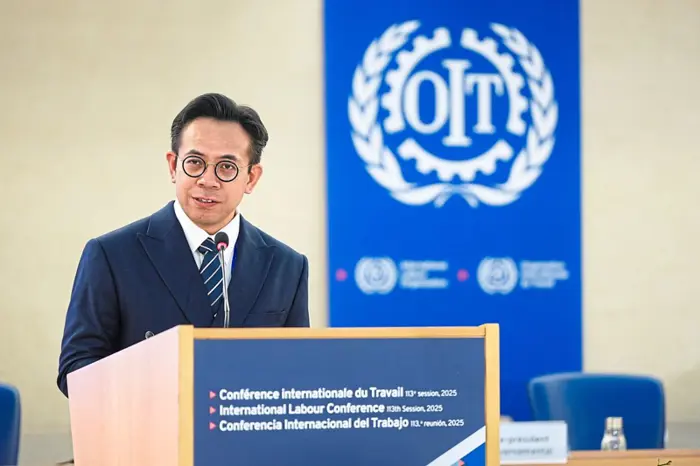
WHILE observing the later stages of the second industrial revolution, a century ago, English writer Rudyard Kipling wrote a poem describing the era’s strange technologies, capable of doing so many human tasks:
“We can pull and haul and push and lift and drive,
We can print and plough and weave and heat and light,
We can run and race and swim and fly and dive,
We can see and hear and count and read and write!”
At the same time, in that poem, The Secret of the Machines, he warned that these technologies were anything but human. For example, they cannot distinguish truth from lies, “neither love nor pity nor forgive”.
For many of us today, artificial intelligence (AI) is as exciting and strange as Kipling’s machines were for his time. AI promises much potential in augmenting human productivity but it also raises fears about alienating humans from what we do best within the naturally created order – our sapiential capability, the ability to acquire knowledge, form insights and make judgments.
Seventeen months ago, when I first assumed office as Human Resources Minister, the things that kept me awake at night were not cold abstract theories or dusty policy manuals.They were everyday conversations with ordinary Malaysians – from corporate leaders and white-collar workers to gig workers and street vendors, wondering if their jobs would last.
At the heart of these conversations were three difficult but necessary questions:
> Can I secure meaningful employment?
> Can I earn a dignified living?
> Will my role remain relevant in a world increasingly shaped by machines?
In the face of AI and rapid digitalisation, these are questions that are already being asked in every corner of our society.
Grounded in data
Technological change is reshaping the core of our economies. In Malaysia, we began by grounding our understanding of this shift in evidence rather than assumption.
Talent Corporation Malaysia Bhd (TalentCorp), an agency under the Human Resources Ministry (Kesuma), undertook a national study on the impact of AI, digitalisation and the green economy on the workforce. We wanted a clear-eyed view of what lies ahead.
The study found that approximately 620,000 jobs are at high risk of being replaced or becoming obsolete due to automation. Workers currently in these roles will require cross-skilling, upskilling or even reskilling.
But this is not a doomsday account. The study also identified 60 emerging roles, with 70% of these roles being in AI and digital technologies. These will create hundreds of thousands of new jobs – roles that are no longer theoretical.
They are already appearing in job listings, and some countries are producing workers who are more equipped to fill them.
From concern to strategy
The way forward is obvious: to ensure our workers are equipped with the skills to adapt to economic trends.
Malaysia spent an annual outlay of RM10bil (US$2.4bil) for skills-related education and training, with about 30% of the funds coming from a statutory levy upon private corporations to be utilised for training their workers.
To facilitate government, corporate and individual decision-making in the area of skills development, we introduced MyMahir. This national digital platform offers real-time insights into job trends, skill requirements and training opportunities.
We also established the Future Skills Talent Council to strengthen partnerships between industry and government.
These sector-based, industry-led councils ensure that skill standards are informed by those who understand the realities of the shop floor and server room.
In the first year of setting up the council, workers trained under its skills programmes received a 12% higher mean wage compared to the national average.
Our aim is to establish “skill universities” that are accessible, industry-aligned and provide qualifications on par with traditional degrees.
An international effort
Malaysia’s challenges are mirrored across Asean. Our economies are growing and our populations are young but our education and labour systems must catch up with technological demands.
The International Labour Organization (ILO) estimates that Asean could create up to 30 million green jobs by 2030 with the right reforms. That future cannot be realised by any one country alone.
During Malaysia’s Asean chairmanship, we will be organising and hosting the Asean Year of Skills (AYOS) 2025, supported by the ILO. This will not only guide deeper regional conversations on human capital development but will direct practical resources towards it.
For a start, in June 2025, Malaysia aims to open up our annual National Training Week, offering 65,000 high-quality skills training courses by both local and global brands to all citizens of Asean. This is our investment in regional human capital development with the aspiration to make Asean the most skilled region in the world.
We are proud to partner with the World Economic Forum to co-chair the Gender Parity in the Future of Work Accelerator in Malaysia, which seeks to empower female talent in this age of AI.
It aligns with our national Madani Economic Framework’s goal to increase female labour force participation. It will propose evidence-based policy recommendations to enhance women’s economic empowerment in the labour market.
Human dignity
As we attempt to comprehend the present and predict the future, one thing is certain: humans write the manual for technology. Kipling ended his poem on a reassuring note – we are in control of technology and not the other way around:
“Though our smoke may hide the Heavens from your eyes,
It will vanish and the stars will shine again,
Because, for all our power and weight and size,
We are nothing more than children of your brain!”
Ultimately, the question is not how evolving technology will impact people’s lives but how government policy can consistently empower and uplift them.
As I reflect on those early days in office, I realise that the questions that kept me up at night were never just about jobs or wages. They were about dignity and ensuring that no one was left behind.

Sim, S. C. K. (2025, June 16). Securing futures in the AI economy. The Star. https://www.thestar.com.my/news/nation/2025/06/16/securing-futures-in-the-ai-economy
- PERKESO reforms ensure comprehensive protection for all workers, says HR Minister
 KUALA LUMPUR: The Human Resources Ministry, through the Social Security Organisation (PERKESO), continues to undertake comprehensive reforms to strengthen social protection for all contributors, including gig workers and foreign workers, says Steven Sim Chee Keong. The Human Resources Minister said that 10 major reforms have been implemented over the past two years to provide more […]
KUALA LUMPUR: The Human Resources Ministry, through the Social Security Organisation (PERKESO), continues to undertake comprehensive reforms to strengthen social protection for all contributors, including gig workers and foreign workers, says Steven Sim Chee Keong. The Human Resources Minister said that 10 major reforms have been implemented over the past two years to provide more […] - KESUMA’s drive for fair work and shared progress
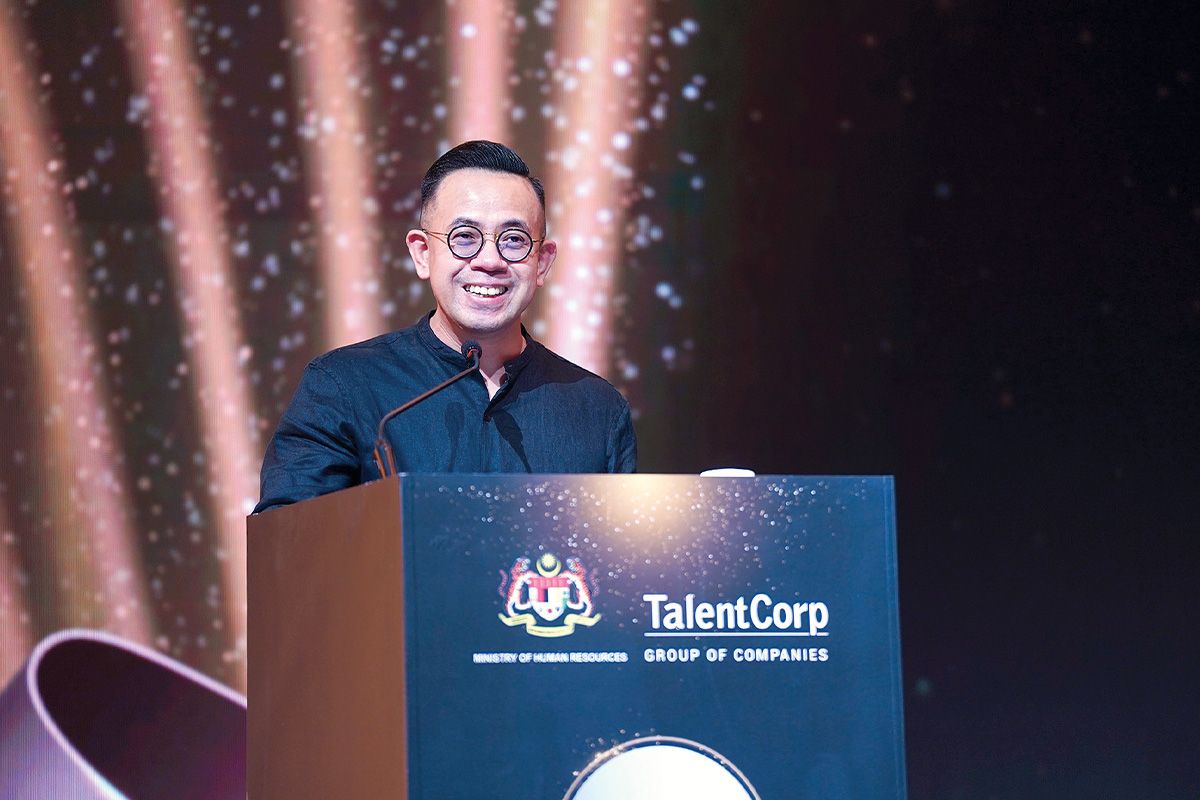 The LIFE AT WORK Awards (LAWA) hosted by Talent Corporation Malaysia Bhd (TalentCorp), celebrates its 10th edition, solidifying its influence as a platform that drives transformation in diversity, equity and inclusion (DEI) in Malaysian workspaces. With concerns regarding human capital rising amid the ubiquity of artificial intelligence (AI), it is crucial now more than ever […]
The LIFE AT WORK Awards (LAWA) hosted by Talent Corporation Malaysia Bhd (TalentCorp), celebrates its 10th edition, solidifying its influence as a platform that drives transformation in diversity, equity and inclusion (DEI) in Malaysian workspaces. With concerns regarding human capital rising amid the ubiquity of artificial intelligence (AI), it is crucial now more than ever […] - ‘Many employers not making mandatory Perkeso, EPF contributions’
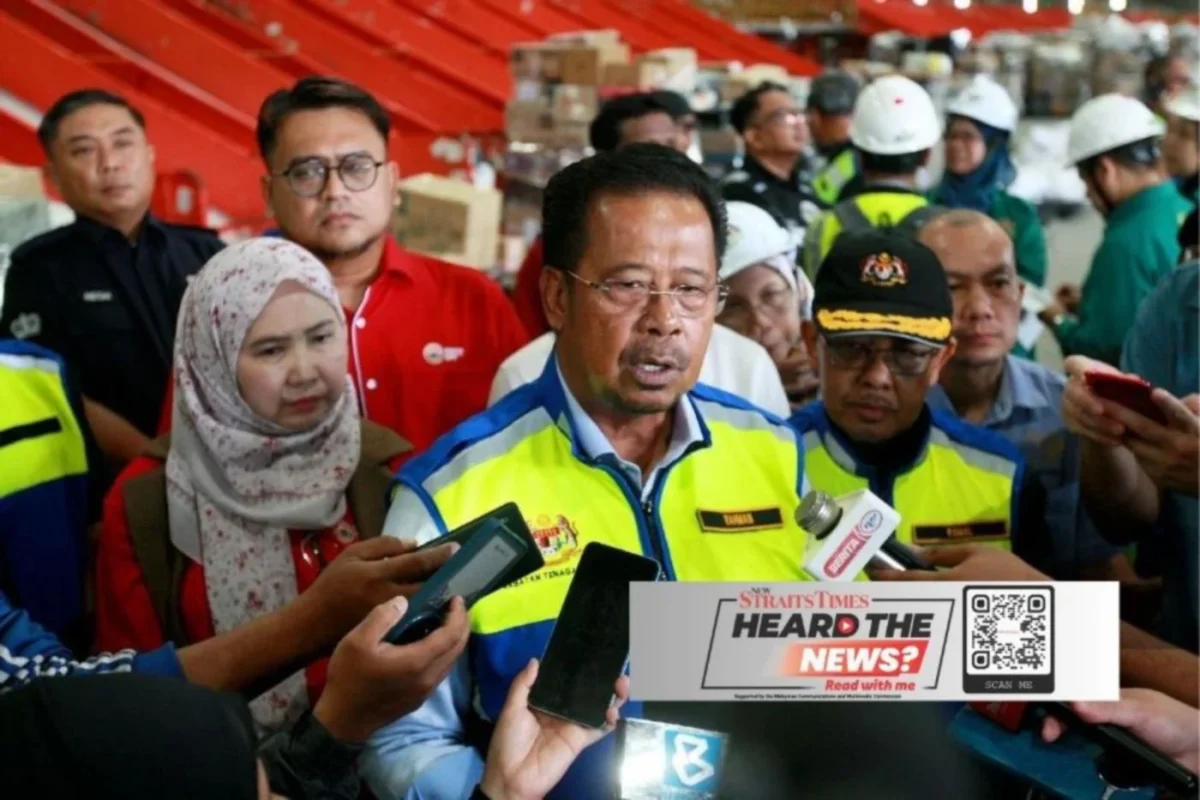 KLANG: The Human Resources Ministry has detected a worrying number of employers still refusing to register or make mandatory contributions to the Social Security Organisation (Perkeso) and Employees Provident Fund (EPF) for their workers. The ministry stressed that such actions violated employees’ rights and denied them basic protection. Deputy Human Resources Minister Datuk Seri Abdul […]
KLANG: The Human Resources Ministry has detected a worrying number of employers still refusing to register or make mandatory contributions to the Social Security Organisation (Perkeso) and Employees Provident Fund (EPF) for their workers. The ministry stressed that such actions violated employees’ rights and denied them basic protection. Deputy Human Resources Minister Datuk Seri Abdul […] - Nearly 500 labour law breach cases detected
 KLANG: Almost 500 investigation papers have been opened against employers for breaches of labour laws as of Nov 1, says Deputy Human Resources Minister Datuk Seri Abdul Rahman Mohamad. Among the most common labour law offences are employers’ failure to make the mandatory contributions to the Social Security Organisation (PERKESO) or the Employees Provident Fund […]
KLANG: Almost 500 investigation papers have been opened against employers for breaches of labour laws as of Nov 1, says Deputy Human Resources Minister Datuk Seri Abdul Rahman Mohamad. Among the most common labour law offences are employers’ failure to make the mandatory contributions to the Social Security Organisation (PERKESO) or the Employees Provident Fund […] - MOHR Won’t Tolerate Companies Preventing Workers From Forming Union
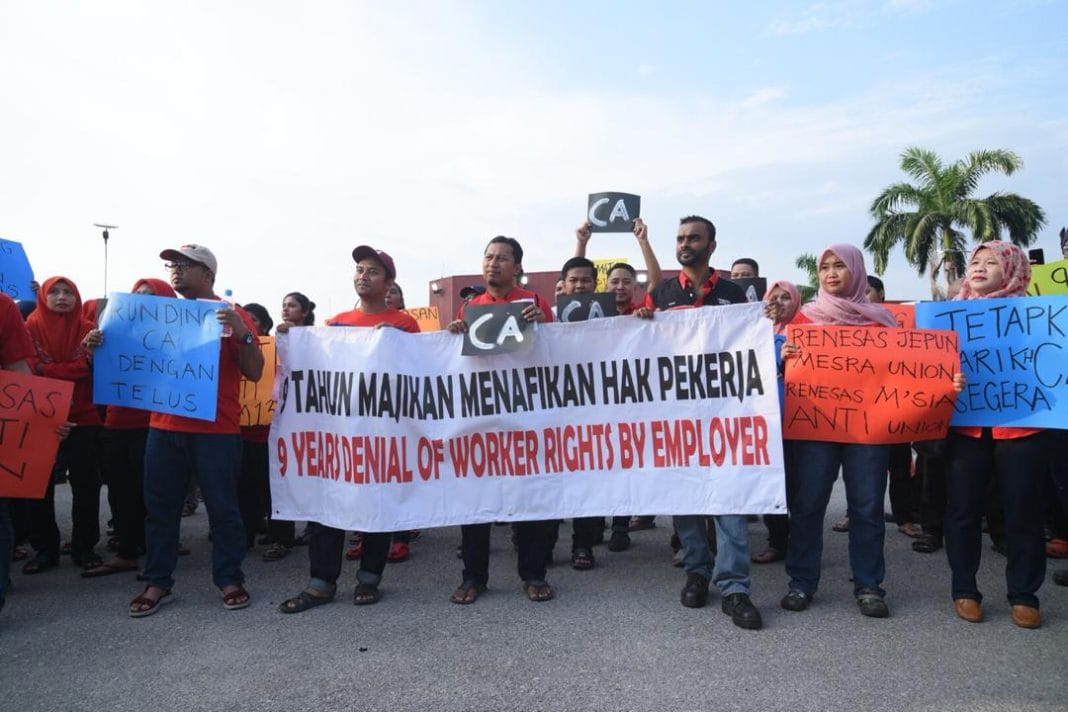 The Industrial Relations Department of the Human Resources Ministry (MOHR) has reaffirmed its commitment to safeguarding workers’ rights after a gathering and memorandum submission by several labour unions concerning alleged union-busting practices. The department emphasised that it respects the constitutional right to peaceful assembly and freedom of speech, while reiterating that workers’ rights to form […]
The Industrial Relations Department of the Human Resources Ministry (MOHR) has reaffirmed its commitment to safeguarding workers’ rights after a gathering and memorandum submission by several labour unions concerning alleged union-busting practices. The department emphasised that it respects the constitutional right to peaceful assembly and freedom of speech, while reiterating that workers’ rights to form […] - Court Orders Employer To Pay 93 Migrant Workers Outstanding Wages
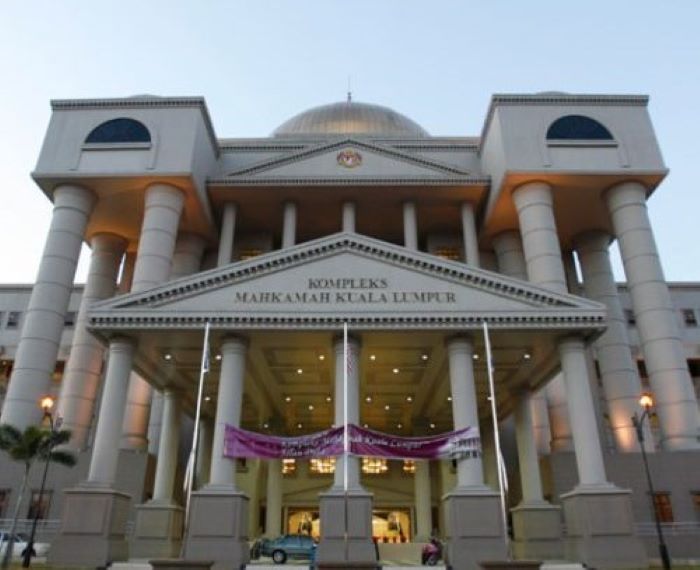 Human Resources Minister Steven Sim Chee Keong has welcomed the Shah Alam High Court’s decision to uphold an earlier ruling by the Labour Court, ordering an employer to pay outstanding wages to 93 migrant workers who were left without work upon arrival in Malaysia. The High Court on 31 October 2025 affirmed the Labour Court’s […]
Human Resources Minister Steven Sim Chee Keong has welcomed the Shah Alam High Court’s decision to uphold an earlier ruling by the Labour Court, ordering an employer to pay outstanding wages to 93 migrant workers who were left without work upon arrival in Malaysia. The High Court on 31 October 2025 affirmed the Labour Court’s […] - No tolerance for employers who withhold wages, says HR Minister
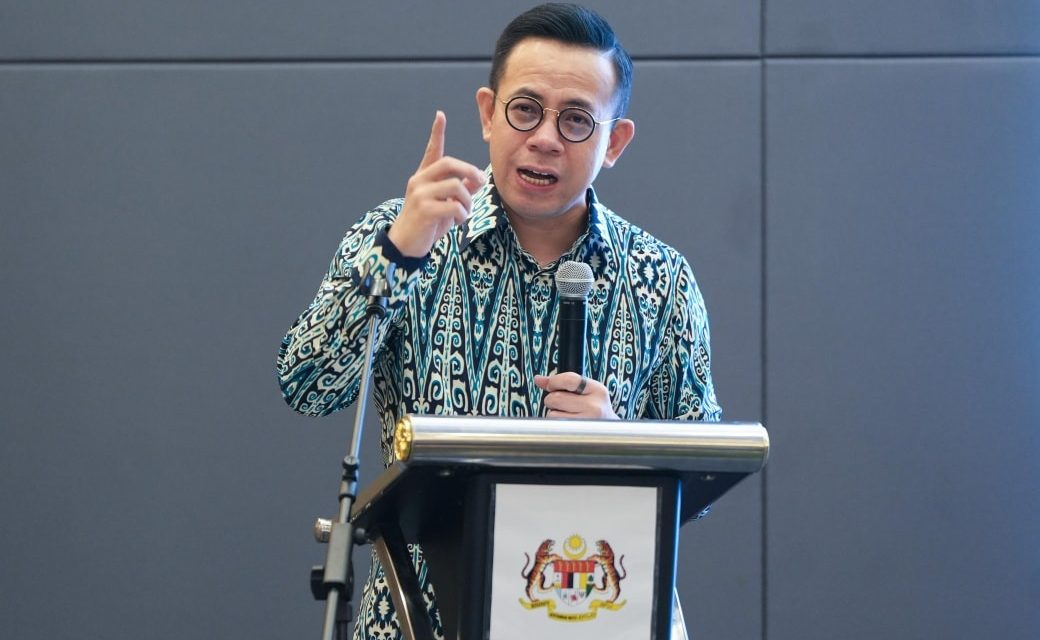 The Ministry of Human Resources (KESUMA) has urged all employers to take heed of the recent Shah Alam High Court ruling which upheld a decision in favour of 93 migrant workers in an unpaid wage case. Human Resources Minister Steven Sim Chee Keong said the Oct 31 decision sends a strong message that failure to […]
The Ministry of Human Resources (KESUMA) has urged all employers to take heed of the recent Shah Alam High Court ruling which upheld a decision in favour of 93 migrant workers in an unpaid wage case. Human Resources Minister Steven Sim Chee Keong said the Oct 31 decision sends a strong message that failure to […] - THE HEART WORK REVOLUTION
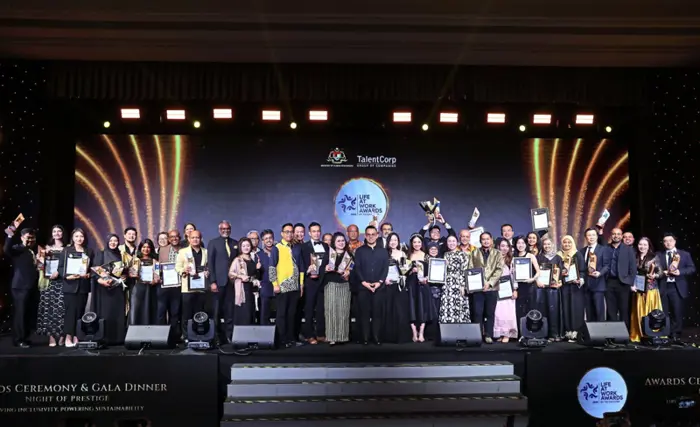 TEN years after its inception, the Life at Work Awards (LAWA) 2025 marked not just a milestone but a movement that celebrates how Malaysia’s workplaces are evolving with compassion, flexibility and purpose. Hosted by Talent Corporation Malaysia Bhd (TalentCorp), the gala night honoured organisations leading the way in shaping a fairer, more progressive, human-centred world […]
TEN years after its inception, the Life at Work Awards (LAWA) 2025 marked not just a milestone but a movement that celebrates how Malaysia’s workplaces are evolving with compassion, flexibility and purpose. Hosted by Talent Corporation Malaysia Bhd (TalentCorp), the gala night honoured organisations leading the way in shaping a fairer, more progressive, human-centred world […] - Group wants clear framework, pilot projects before expanding EIS to gig workers
 PETALING JAYA: The Malaysian Industrial, Commercial and Service Employers Association (Micsea) has called on the government to set a clear policy framework and run pilot projects before expanding the Employment Insurance System (EIS) to gig and platform-based workers. The association said the plan, announced by human resources minister Steven Sim in the Dewan Rakyat on […]
PETALING JAYA: The Malaysian Industrial, Commercial and Service Employers Association (Micsea) has called on the government to set a clear policy framework and run pilot projects before expanding the Employment Insurance System (EIS) to gig and platform-based workers. The association said the plan, announced by human resources minister Steven Sim in the Dewan Rakyat on […] - Employer group seeks clarity on foreign worker pay rules after court ruling
 KUALA LUMPUR (Nov 3): The Malaysian Industrial Commercial & Service Employers Association (MICSEA) is calling on the Ministry of Human Resources (MOHR) to issue clear and structured guidelines on wage payment timelines for foreign workers, following a recent court ruling that employers must pay wages from the moment these workers arrive in Malaysia. The call […]
KUALA LUMPUR (Nov 3): The Malaysian Industrial Commercial & Service Employers Association (MICSEA) is calling on the Ministry of Human Resources (MOHR) to issue clear and structured guidelines on wage payment timelines for foreign workers, following a recent court ruling that employers must pay wages from the moment these workers arrive in Malaysia. The call […]

